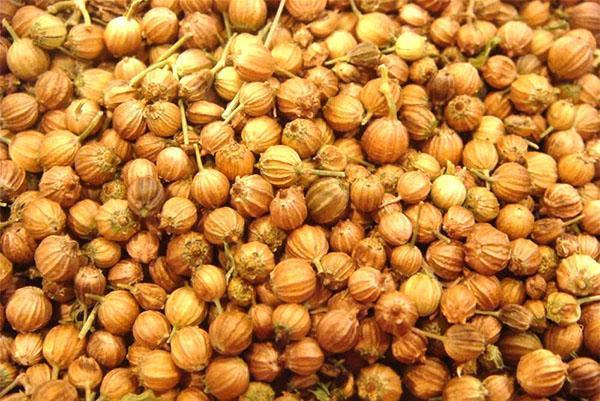Collecting your own seeds from greenery
 Gardeners can harvest seeds from their own plants. The collection of planting material is carried out from July to August, depending on the culture. It is very difficult to collect pure varietal seeds in summer cottages, since many plants are pollinated. For example, to collect varietal carrot seeds, you need to place the beds at a distance of 100 m from each other. Otherwise, the root crops will be pollinated, and a new variety will grow with unknown taste. Therefore, many summer residents do not want to grow their seeds and buy them every year in gardening stores.
Gardeners can harvest seeds from their own plants. The collection of planting material is carried out from July to August, depending on the culture. It is very difficult to collect pure varietal seeds in summer cottages, since many plants are pollinated. For example, to collect varietal carrot seeds, you need to place the beds at a distance of 100 m from each other. Otherwise, the root crops will be pollinated, and a new variety will grow with unknown taste. Therefore, many summer residents do not want to grow their seeds and buy them every year in gardening stores.
Consider plants that are not pollinated. You can harvest your own seeds from such plants. At the same time, the varietal characteristics of plants are preserved.
Collecting cilantro, dill and parsley seeds
Seeds cilantro called coriander. The coriander is harvested in mid-July, when the cilantro bush fades. Coriander seeds are in a capsule that opens when ripe. The seeds are quite large, they can be used as a seasoning for various dishes, or you can dry them and get high-quality planting material for the next season.
For drying, coriander is collected in paper bags and stored at room temperature on a windowsill. The moisture from the seeds will begin to evaporate, and in three weeks they will be ready to plant.
Dill blooms with yellow flowers that look like umbrellas. In July, the dill seeds ripen and the inflorescences turn brown. You can collect planting material by cutting off the inflorescences with a knife. Dill reproduces well by self-seeding. Dill seeds can spread up to 120 m around the plant. Therefore, in many vegetable gardens, dill grows independently and even inhibits other cultivated plants.
Parsley, in contrast to cilantro and dill, is a biennial plant. Therefore, you can get seeds only in the second year after planting. Parsley also self-propagates, but the seeds do not spread as far over the area as dill seeds.
Parsley seeds ripen in July.
Collecting seeds of over-pollinated plants
To preserve a high-quality variety of over-pollinated plants, you need to use several rules.
- Collect seeds from only one variety of root vegetables or vegetables per year.
- Plant the varieties of cultivated plants you like in separate greenhouses and greenhouses.
- Sign seed containers and store in a cool, dark place.
Following these rules, you will receive high-quality planting material and will be able to preserve the varietal characteristics of any plant.